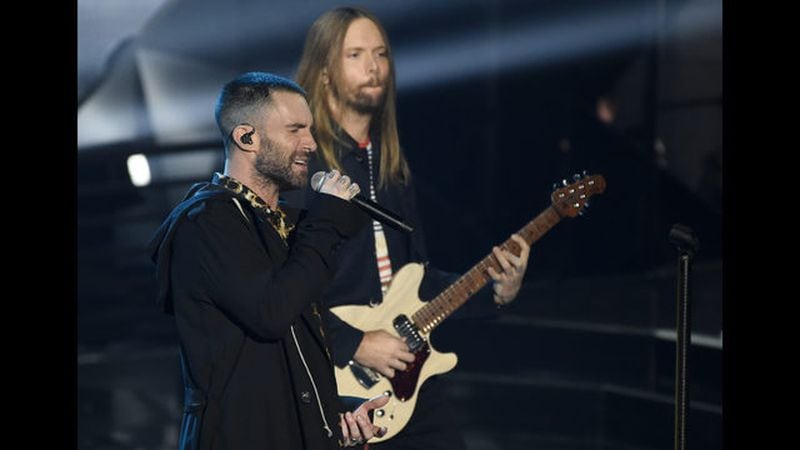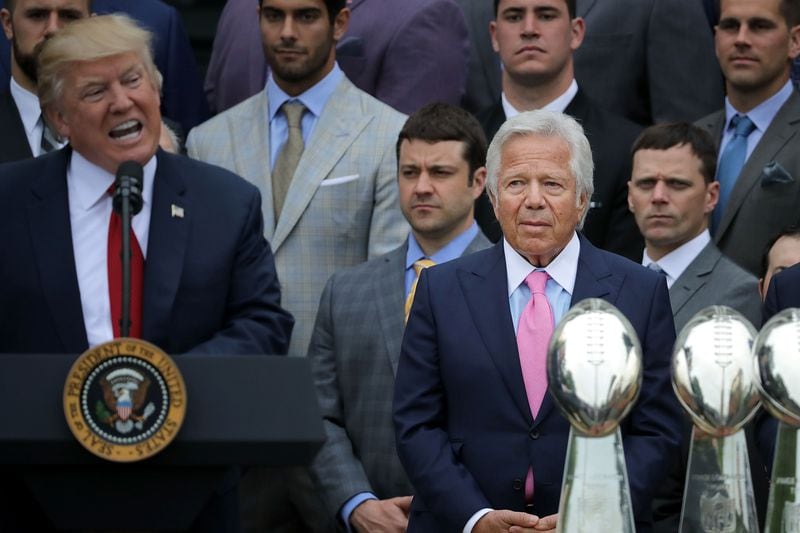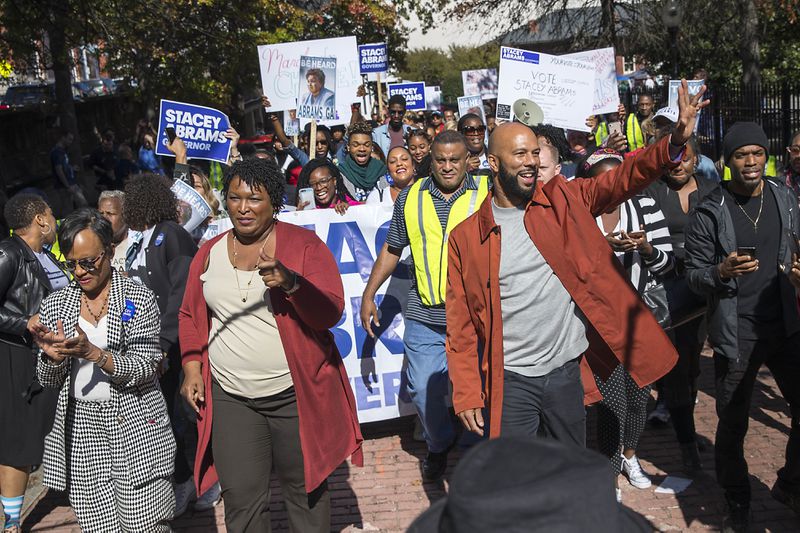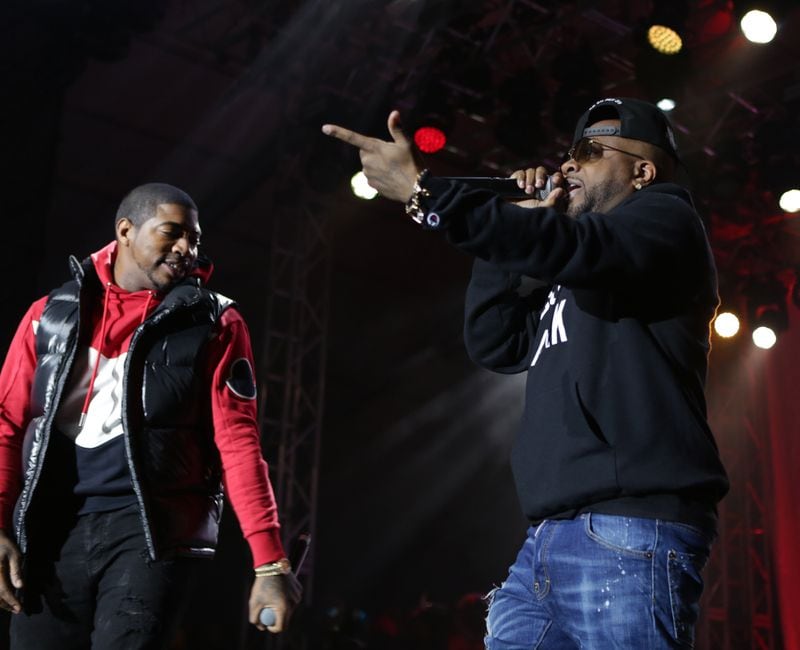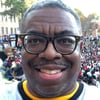When Maroon 5 canceled a planned press conference to discuss the band’s upcoming Super Bowl halftime performance, this much was made crystal clear:
Despite the NFL’s efforts to move on, the controversy ignited by quarterback Colin Kaepernick and other players’ decision to kneel during the national anthem as a way to protest racial injustice, the league’s reaction and the public’s response is far from over.
Even if few league officials want to talk about it. And certainly not Maroon 5.
Credit: Copyright 2019 The Associated Press. All rights reserved. This material may not be published, broadcast, rewritten or redistributed.
Credit: Copyright 2019 The Associated Press. All rights reserved. This material may not be published, broadcast, rewritten or redistributed.
Facing blowback from those who still haven’t forgiven the NFL for how it dealt with Kaepernick and others, the band scuttled a news conference planned for Thursday.
The nationwide debate continues as the league’s signature event settles into one of America’s blackest cities, a place built that’s on civil rights and a historic embrace of nonviolent protest.
There’s still speculation that Kaepernick, whose protest three years ago led to players around the league kneeling, is being blackballed. He hasn’t worked as a quarterback since 2017. And there’s a pending National Football League Players Association lawsuit against the league, alleging that team owners, influenced by President Donald Trump, conspired against him.
In May, the NFL announced that teams would be fined if all of their players did not stand for the national anthem, although it did suggest that players could stay in the locker room. But the league later abandoned the policy so they could negotiate terms with the NFLPA.
Only a handful of players, including Carolina Panther Eric Reid and Miami Dolphins wide receivers Kenny Stills and Albert Wilson, knelt during the national anthem during games this season.
NFL Commissioner Roger Goodell, at his annual State of the NFL Address, touched vaguely and briefly on Kaepernick.
“Our clubs make decisions about players they want on their rosters,” Goodell said. “If a team decides that (Kaepernick) or any other player can help their team win, that’s what they’ll do.”
At other times during his 45 minutes fielding questions, the commissioner referred to Atlanta as “a city of milestones, a city of progress” and “the pillar of the civil rights movement.”
Using the grand spectacle of the Super Bowl as a backdrop, several organizations have have seized on that Atlanta history and plan some form of protest in the days leading up to the game.
It is not a new concept.
Last year, 17 activists protesting police brutality were arrested outside of U.S. Bank Stadium in Minneapolis after blocking a light-rail line carrying Super Bowl ticket holders.
In 2000, the last year Atlanta hosted a Super Bowl, more than 100 protesters, led by the Rev. Joseph Lowery and the Rev. Jesse Jackson, protested Georgia’s continued use of Confederate symbols on the state flag. A similar rally, against Confederate monuments, is planned for Saturday at Piedmont Park to take advantage of the publicity that will come with the Super Bowl in Atlanta.
Gerald Griggs, an Atlanta attorney and board member for the Georgia Alliance for Social Justice, said the NFL has responded poorly when given the chance to weigh in on social ills. The treatment of black men by police is one example, he said.
“The very issue that Colin Kaepernick was highlighting is continuing to be ignored by the NFL and ultimately by the person they have chosen to align themselves with,” Griggs said.
That person is President Trump, he said. During the 2017 season, Trump excoriated NFL players for taking a knee during the national anthem.
“Since the rise of President Trump, we’ve seen intolerance go to a whole new level,” Griggs said. “For the National Football League to align with that is completely against our principles of social justice and equality for all.”
Griggs said his organization will highlight the continued concern about police shootings, including the death earlier this month of 21-year-old Jimmy Atchison, who was shot by an Atlanta police officer. Atchison was allegedly fleeing police and federal authorities who sought to arrest him on an armed robbery warrant. Griggs said Atchison’s family, who say Atchison was unarmed and hiding in a closet when he was shot, will be at the rally.
Jamal H. Bryant, senior pastor of New Birth Missionary Baptist Church in Stonecrest, has been boycotting the Super Bowl since Kaepernick took a knee and once led about 300 men to take a knee outside of M&T Bank Stadium in Baltimore.
And he’s not changing his mind this year when the Super Bowl is held in his new town of Atlanta.
“Black people in America have been played too often and too much,” he said. “America was upset when Colin Kaepernick took a knee but became deathly quiet when 800,000 people didn’t get a check during the furlough.”
Bryant said he plans to address the issue with a “Soup & Souls Sunday Worship Service,” followed by a Super Bowl party for the homeless community, with food and ministry.
As they prepare to perform at halftime, Maroon 5, Travis Scott and Atlanta’s Big Boi have faced withering scrutiny over their decisions to play. More than 111,000 people have signed a change.org petition, urging them to drop out of the event. Meanwhile, superstars like Rihanna and Cardi B. publicly refused invitations to perform in support of Kaepernick.
Credit: Alyssa Pointer
Credit: Alyssa Pointer
Rapper and activist Common, in town last week to deliver a speech on workplace diversity, said he was not “feeling the NFL right now.”
“I believe in Kaepernick and what he stands for,” he said.
“I respect that Rihanna said she was not performing because she respects Kaepernick. That says a lot because the Super Bowl is a big stage to perform on. But your ethics, to say I can’t support this, says a lot,” Common told The Atlanta Journal-Constitution, adding that he would have refused an invitation to perform. “For those performing, God bless them. Everybody has their own choice. They gotta live their lives. But I gotta stand for something.”
Atlanta native Gladys Knight, who will perform the national anthem before the game, has fought back and lobbed criticism at Kaepernick’s method of activism.
Lil Jon, who is also from Atlanta, said, “It’s rare when we’re able to showcase what we love about this city and showcase our city. I think it’s more about the city than it is anything else. The Super Bowl is the Super Bowl, but this is the city we’ve grown up in, we launched our careers in and the city we live in. It’s about showcasing everything we love about our city.”
Credit: Akili-Casundria Ramsess
Credit: Akili-Casundria Ramsess
Jermaine Dupri, who is producing a series of concerts and events this week, likened the performers to NFL player Reid, who, when he couldn’t find a job in the league, filed a grievance letter against the NFL, charging collusion.
Last September, he was signed by the Panthers. He went back to work, despite the NFL not embracing kneeling as a form of protest.
“People tell me, ‘He gotta take care of his family.’ Well, what about Gladys Knight?” Dupri asked. “I’m confused on that part. If everybody cool with Eric Reid still playing football, then why is everybody so mad about somebody performing for Super Bowl? If that’s what your job is?”
Staff writers Shelia Poole, Arielle Kass and Rosalind Bentley contributed to this article.
